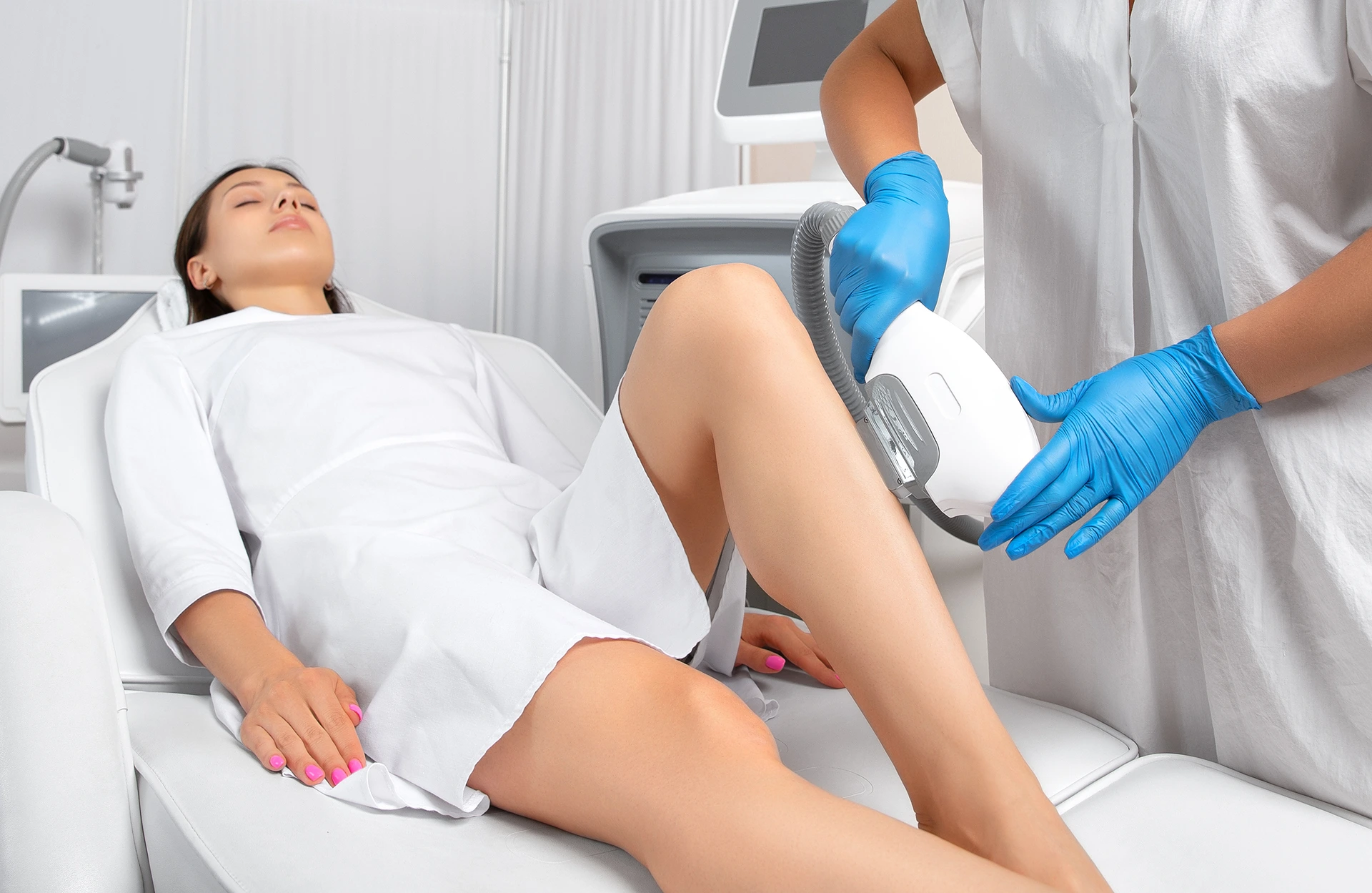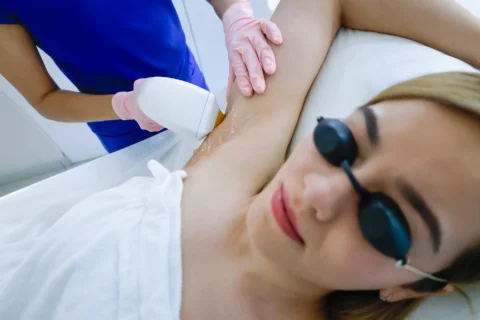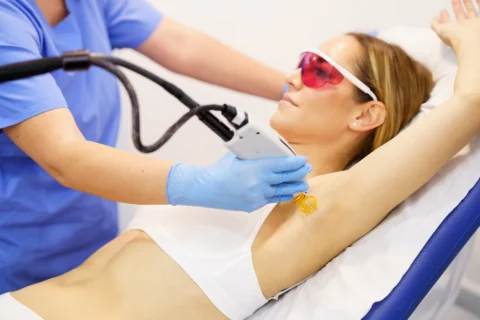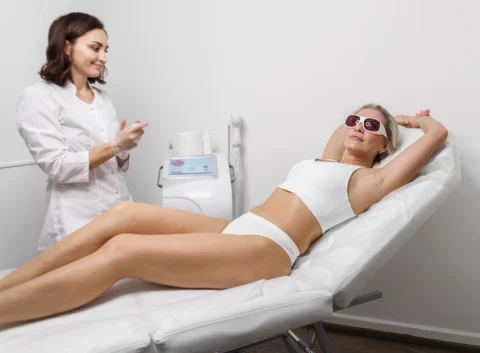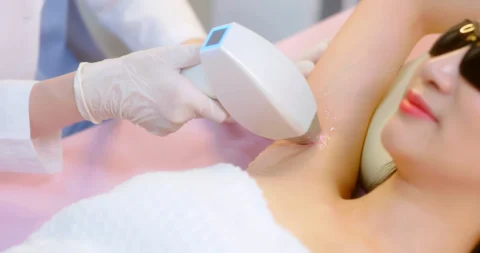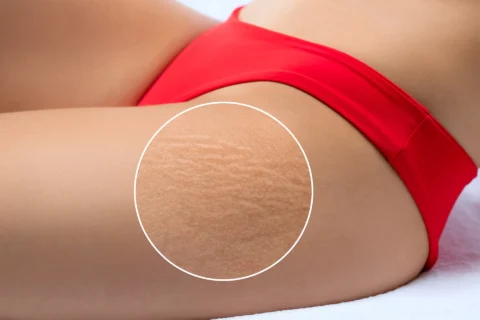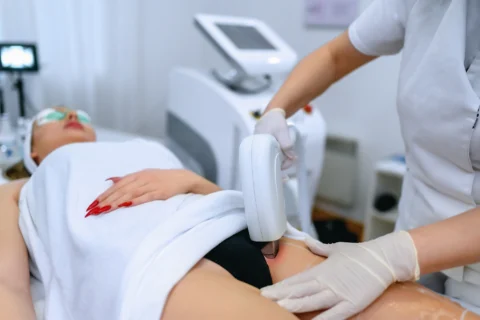A Dermatologist’s Guide to Safely Removing Unwanted Hair with Lasers for Those with Sensitive, Irritated Skin
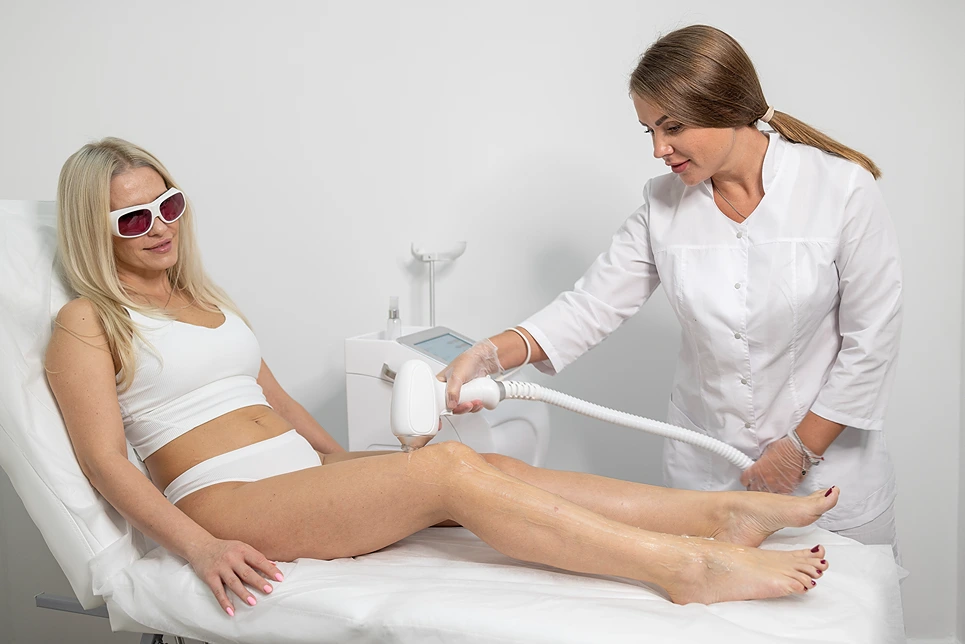
Eczema, also known as atopic dermatitis, is a common skin condition characterized by dry, irritated, inflamed skin that is extremely sensitive and prone to itching. For those suffering from eczema flare-ups in areas with unwanted hair growth, hair removal can be a frustrating challenge.
Dr. Soni of Ethos Aesthetics + Wellness offers a safer, more effective hair removal solution for those with eczema. When performed correctly by an experienced dermatologist, laser hair removal can successfully remove unwanted hair for those with eczema-prone skin.
With our customized in-office laser treatments, you can finally say goodbye to annoying razors, painful waxing and irritating creams. Read on to learn if you’re a good candidate for lasers and achieve smooth, stubble-free skin that doesn’t trigger eczema flares!
What Is Eczema and What Causes It?
Eczema is an incredibly common condition, affecting 31.6 million Americans. It results from a defect in the skin barrier due to lower levels of filaggrin, a protein responsible for maintaining hydration. This defect allows moisture to escape while also allowing external irritants and allergens to penetrate deep into the skin layers.
An overactive immune response is triggered, causing increased inflammation and a cascade of eczema symptoms:
- Dry, scaly, cracked skin
- Red, irritated bumps or patches
- Severe itching, often worse at night
- Thickened, leathery skin over time
While genetics play a role, environmental triggers also impact eczema, including:
- Irritants like soaps, detergents, perfumes
- Allergens such as dust mites, pollen, pet dander
- Weather and temperature changes
- Stress and emotions
Eczema tends to flare up periodically, with symptoms worsening but then improving. Ongoing gentle skin care and avoidance of triggers is key to controlling outbreaks.
Laser Hair Removal and Eczema
Laser hair removal is generally considered safe for those with mild to moderate eczema. In fact, it can be preferable to other options like shaving or waxing which directly irritate the skin’s surface.
However, it’s vital to have your eczema under good control before starting laser treatments. Lasers work by targeting melanin in the hair follicle, zapping it with pulses of concentrated light that destroy the follicle. This process can cause some minor irritation, redness and swelling as the skin reacts to the heat energy.
For someone with severe or uncontrolled eczema, this extra irritation from lasering could potentially trigger increased inflammation, itching, pain and worsen a flare-up.
It’s best to avoid laser hair removal if you have:
- Oozing or infected eczema lesions
- Cracked, broken or bleeding skin
- Widespread severe eczema covering the treatment area
Starting a laser when your eczema is calm will minimize risks and side effects. We recommend waiting 1-2 weeks after any major flare-up before undergoing a session. It also helps starting with less sensitive body areas first before treating the face or other regions prone to eczema outbreaks.
Experience Safe Laser Hair Removal at Ethos Aesthetics – Get Started Today for Smoother Skin!
Can Laser Hair Removal Cause Eczema?
In most cases, laser hair removal does not actually cause eczema in individuals who did not previously have the condition. However, it does pose a small risk of aggravating existing eczema for some patients.
The level of irritation depends on multiple factors:
- Severity of one’s eczema
- Area being treated
- Type of laser used
- Technique and settings applied
For those with very mild eczema or areas minimally impacted, laser hair removal may not cause any eczema flaring at all. But those with moderate to severe eczema could experience some increased itching, redness or inflammation following treatment. This irritation should resolve as the skin heals, usually within a few days up to 1-2 weeks.
The Process of Laser Hair Removal for Eczema
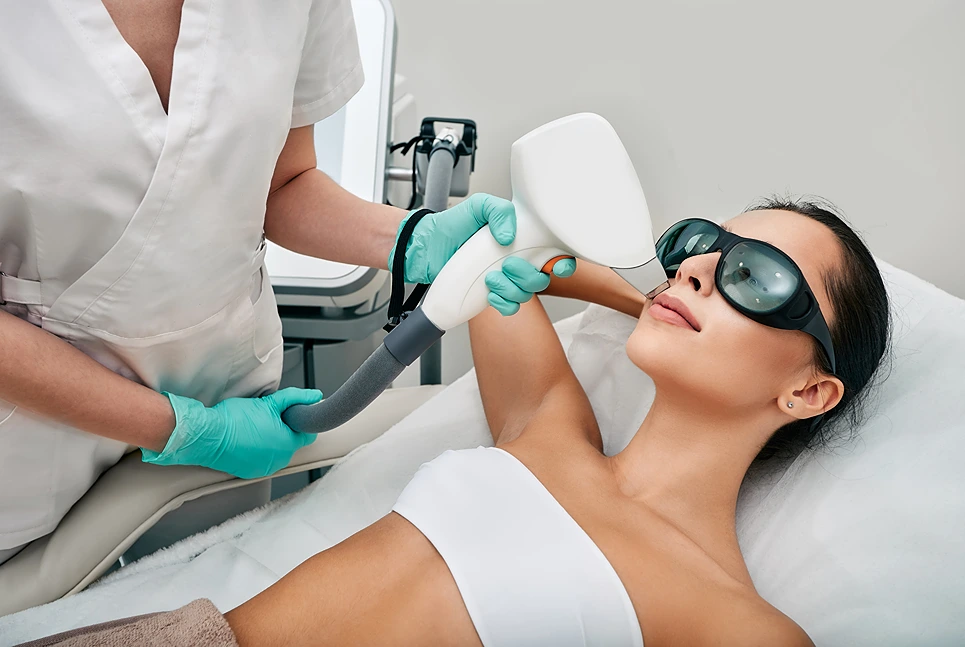
The laser hair removal process itself is the same for those with and without eczema. It involves using a specialized device that emits a focused beam of pulsating light energy which selectively targets and damages the melanin in hair follicles.
This precisely removes hair without damaging surrounding skin structures. Hair sheds about 2-3 weeks after each session and results are cumulative over the course of treatments.
Most areas require 4-6 sessions spaced 4-8 weeks apart to achieve up to 90% permanent hair reduction. Here are some considerations when undergoing laser hair removal with eczema:
- Avoid actively flaring areas. Schedule sessions when eczema is calm.
- Start with less sensitive regions like arms, legs, back before treating the face or bikini line if prone to eczema.
- Inform your provider of eczema prone areas so they can adjust settings and technique.
- Topical steroids several days before and after may prevent flaring.
- Sessions may be spaced further apart to allow sufficient healing time.
- More numbing cream could be used prior to sessions for comfort.
- Avoid any infected eczema sores which require antibiotic treatment first.
With proper precautions tailored to your unique situation, lasers can successfully remove hair from eczema prone regions for the long term.
Benefits of Laser Hair Removal for Eczema-Prone Skin
Undergoing laser hair removal at an established dermatology practice like Ethos Aesthetics provides many advantages for those struggling with chronic eczema symptoms:
Long-Lasting Results
Laser hair removal provides the longest lasting solution for smooth skin available. It’s light years beyond shaving or waxing that must be repeated constantly to maintain results.
For eczema sufferers, this reduces the need for frequent hair removal sessions that can irritate the skin. Most patients enjoy several months stubble-free between touch-up sessions.
Less Irritation
Laser hair removal is widely considered the safest method for those with eczema when performed correctly. It poses less risks of cuts, infected hair follicles or widespread surface irritation versus shaving, waxing, depilatories or plucking. For some patients, removing unwanted hair growth may even reduce eczema flaring.
Treats Active Eczema Areas
The laser’s focused energy can treat hair growth in active eczema patches, not just clear skin. However, really infected, oozing lesions still need to fully heal before undergoing a laser. With proper precautions, even sensitive facial and bikini regions prone to eczema can benefit.
Customized For Your Situation
An experienced provider will tailor the laser settings and technique to your skin’s sensitivities. More cooling and numbing is applied to eczema-prone zones. Treatment intervals are adjusted based on your healing response. This personalization provides the safest, most effective approach.
Unlock Long-Lasting Results with Laser Hair Removal – Contact Us to Transform Your Skin!
Alternatives to Laser Hair Removal for Eczema Patients
If you decide laser hair removal is not suitable at this time, there are other options to consider for dealing with unwanted hair growth:
| Method | Tips |
| Shaving | Use a fresh, sharp razor and shaving cream or oil for lubrication. Take care to avoid friction and cuts which can introduce infection. |
| Waxing | Smaller at-home wax strips allow targeted hair removal while minimizing wide irritation. Pre-treat skin with hydrocortisone cream to reduce inflammation. |
| Hair Removal Creams | Look for gentle formulations labeled for sensitive skin and do a patch test first. Rinse off quickly if stinging or redness occurs. |
| Trimming | Buzzing hair short with scissors or electric clippers avoids pulling hair from below the skin which causes more irritation. |
| Plucking | Tweezing individual hairs is time consuming but avoids wider spread irritation. Use a magnifying mirror and sterile tweezers. |
| Hair Growth Inhibitors | Prescription creams like eflornithine inhibit enzymes involved in growth. Takes a few months to show results. |
| Intense Pulsed Light (IPL) | This uses multiple wavelengths of light vs. lasers. Tends to be less irritating but requires more repeat sessions. |
How to Handle Eczema Flare-Ups During Laser Hair Removal
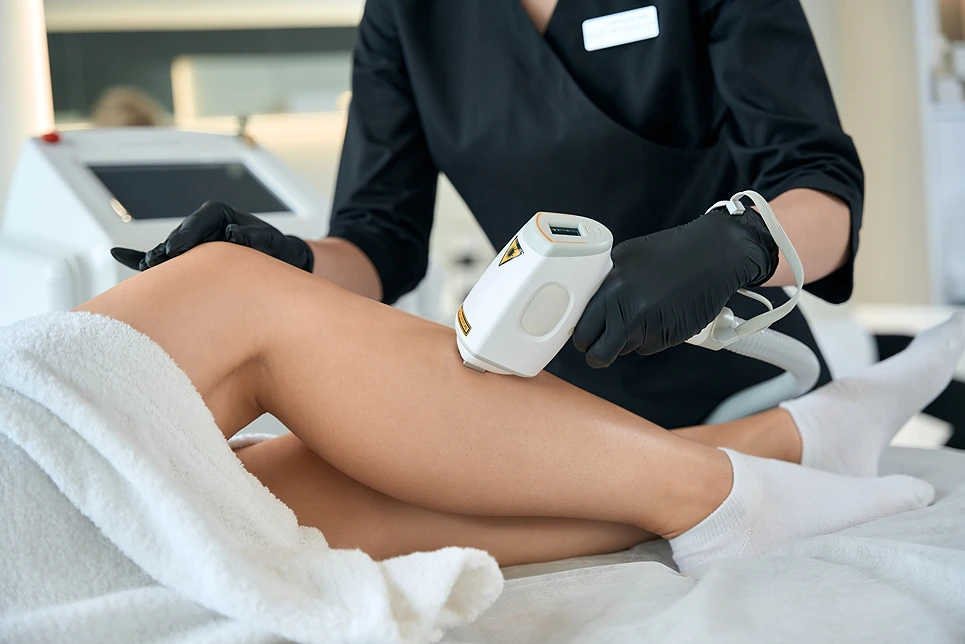
It’s generally recommended to avoid laser hair removal when you’re experiencing an active eczema flare-up. The skin is already inflamed, sensitive and vulnerable, so lasering could worsen redness, swelling, irritation and itchiness.
Additionally, going through with treatment while flaring can impact results. The eczema lesions may partially block the laser light from fully reaching all the hair follicles. This could decrease effectiveness and require more repeat sessions down the road.
Here are some tips for managing any eczema flare-ups that occur around scheduled laser appointments:
- Reschedule your session until the flare-up clears. Avoid lasering inflamed skin.
- See your dermatologist promptly at the first signs of flaring for treatment. Topical corticosteroids and oral antihistamines can calm outbreaks.
- Stick closely to your regular eczema skin care routine. Don’t slack on applying prescription creams or moisturizers.
- Identify and avoid triggers that may have set off the recent flare. This might require changes in soaps, laundry detergent or other products.
- Consider spacing out laser sessions further apart. Waiting 8-12 weeks rather than 4-6 weeks allows more healing time.
- Wear loose breathable clothing over treated areas to minimize friction that can worsen eczema after lasering.
- Apply cool compresses and over-the-counter hydrocortisone cream to reduce post-treatment discomfort.
How to Care for Your Skin After Laser Hair Removal
Proper aftercare is crucial for those with eczema-prone skin undergoing laser hair removal. Here are some tips:
- Apply gentle, fragrance-free moisturizers multiple times a day after each session. This prevents dryness that exacerbates eczema. Ointments with ceramides help strengthen the compromised skin barrier.
- Placing a cool, damp cloth over the treated area can provide soothing relief if stinging or itching occurs. Oral antihistamines also reduce inflammation.
- Do not scrub, exfoliate or apply potential irritants like retinoids or benzoyl peroxide to the lasered skin while healing. This can disturb the area and trigger an eczema flare.
- Use a fragrance-free, creamy body wash or cleansing oil rather than typical bar soaps. Reduce washing to only 1-2 times per day if the area feels sensitive.
- See your dermatologist promptly if you notice increasing redness, swelling, oozing, warmth or pain which could indicate infection. Oral antibiotics may be required.
We advise treating laser spots prone to eczema with topical hydrocortisone 1% or a mild steroid cream for several days post-treatment to minimize inflammation.
With attentive skincare and avoidance of irritants, you can undergo laser hair removal successfully even if you have eczema.
Ready to Safely Remove Unwanted Hair with Laser Treatments?
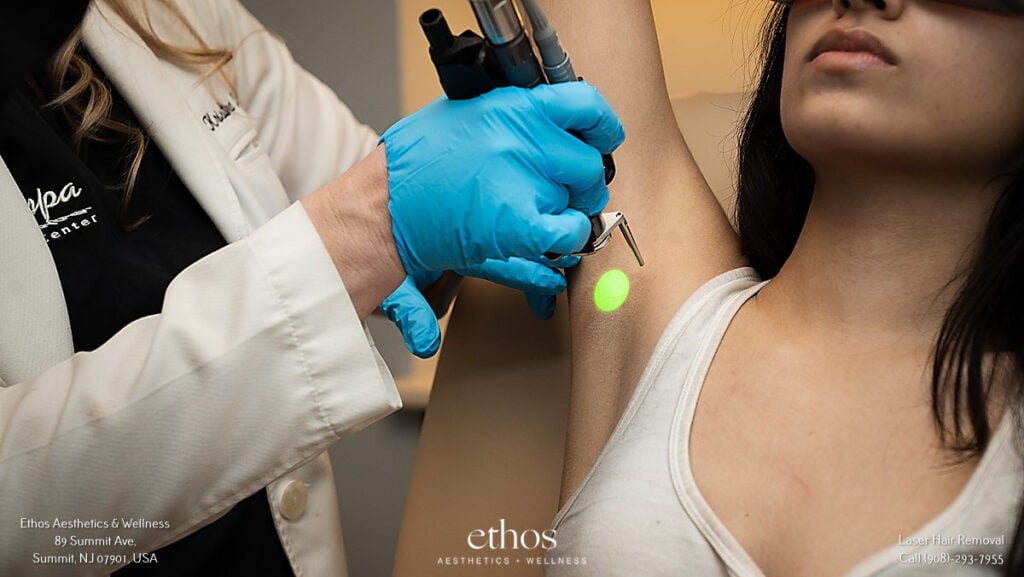
Book a consultation today with Dr. Soni to see if laser hair removal is right for you. Our goal is giving you smooth, stubble and irritation-free skin while keeping any eczema controlled and calm.
You deserve to feel confident and comfortable in your own skin. With Ethos Aesthetics’ non-invasive solutions, you can put your best face forward. Contact us today!

